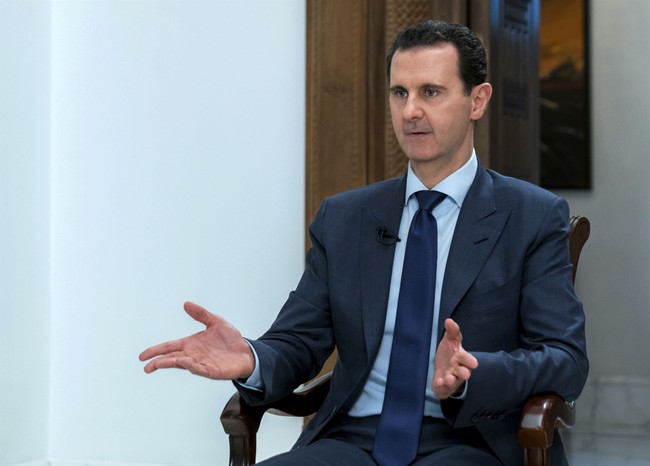We support our Publishers and Content Creators. You can view this story on their website by CLICKING HERE.

Timing is everything in life, love, and war. The Islamist rebels who have been fighting the regime of Bashar Assad since 2012 recognized their moment had arrived when Israel pulverized one of Assad’s major military backers, Hezbollah.
Advertisement
Soon after Israel had decapitated Hezbollah’s leadership, Hayat Tahrir al-Sham (HTS), the largest and best organized of the Islamist militias in Syria, went on the offensive. With Hezbollah fatally weakened and Syria’s other military ally, Russia, occupied with the war in Ukraine, HTS took advantage of the sorry state of the Syrian regular army and began to roll.
They took Aleppo, Syria’s second-largest city, after the Syrian army reportedly fled after hardly firing a shot. There were also reports of Syrian troops throwing down their weapons and peeling off their uniforms before fleeing their posts.
No one wanted to fight for the Assad family to maintain control of Syria. Hafez al-Assad, Bashar’s father, took over Syria in 1971 and ruled with an iron fist. Bashar was able to put down the initial uprising against his rule during the “Arab Spring” in 2011 but needed the help of Iran and their proxy Hezbollah as well as the Russian air force to maintain control of most of the country.
The Russian foreign ministry announced Assad’s exit in a brief statement. Syria’s foreign ministry issued a statement that seemed to accept the change in leadership without missing a beat.
“A new page in Syrian history is being written, consecrating a national oath and covenant that will bring all Syrians together,” the statement said.
Joyful crowds gathered in central squares in Damascus, waving the Syrian revolutionary flag in scenes that recalled the early days of the Arab Spring uprising, before a brutal crackdown and the rise of an insurgency plunged the country into a nearly 14-year civil war.
Others gleefully ransacked the presidential palace and the Assad family residence after President Bashar Assad and other top officials vanished, their whereabouts unknown. Russia, a close ally, said Mr. Assad left the country after negotiations with rebel groups and had given instructions to transfer power peacefully.
Advertisement
That remains to be seen. HTS may be in no mood to share power with groups like the Kurds and the Free Syria movement. HTS leader Abu Mohammad al-Jolani, once a commander in al-Qaeda, now swears he “embraces pluralism and religious tolerance,” according to the Sun. So did the Taliban in Afghanistan.
“By far, he’s the most important player on the ground in Syria,” said Jerome Drevon, a senior analyst at the International Crisis Group.
HTS governed Idlib province after a 2020 deal made with the Russians and Assad. The way the Islamists ran the province gives us a hint of how they might govern Syria.
In recent years, Mr. al-Jolani and his group have built an administration in the territory they govern, collecting taxes, providing limited public services, and even issuing identity cards to residents, according to a U.N. report. They have also come under criticism from inside and outside the country for using authoritarian tactics and cracking down on dissent.
Questions have emerged about what kind of government Mr. al-Jolani would support and whether Syrians would accept it. In Idlib, Hayat Tahrir al-Sham has espoused a government guided by a conservative and at times hard-line Sunni Islamist ideology.
Al-Jolani has tried to reassure minorities in Syria that he will recognize other religious and secular minorities. There was once a very large Christian community in Syria comprising 10% of the population. But since the 2011 civil war, most Christians have fled so that by 2022, only about 2.5% of the population identified as Christian.
Advertisement
I am not optimistic. HTS is certainly not going to establish a “pluralistic democracy.” They have no guiding democratic principles to steer the new regime toward tolerance and power-sharing.
The Syrian people may not realize it now, but they’ve just exchanged one brutal tyrant for a fanatical, brutal tyrant. I would suggest that Western governments think long and hard before sending the hundreds of billions of dollars needed to rebuild the country.

 Conservative
Conservative  Search
Search Trending
Trending Current News
Current News 







